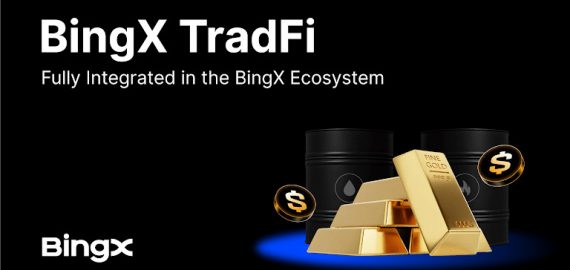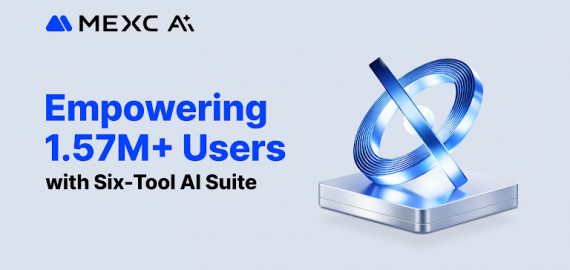Harnessing Blockchain Innovation: Germany Takes a Bold Step Towards Healthcare Transformation and Enhanced Patient Care


In Brief
Germany’s Federal Ministry of Health is hosting a competition to explore blockchain initiatives for healthcare.
Blockchain has the potential to completely change the healthcare sector as it offers different ways to prevent fake prescriptions and improve data security. Germany’s Federal Ministry of Health has opened up a competition to investigate blockchain initiatives that seek to solve a range of issues facing the healthcare industry. Numerous concepts demonstrating the adaptability of blockchain applications in healthcare have been uncovered by this competition.
Blockchain-Based Medical Solutions in Germany
The Federal Ministry of Health launched a competition to find ideas that might stop fake prescription drugs and create strong business plans for blockchain applications in the German healthcare system. The entries included a broad spectrum of topics, such as permission declarations, rights and identity management, and organ and tissue donation registrations. The initiatives that were showcased were designed to preserve patient consent data, prevent drug tampering, and enable safe electronic transmission of statements of inability to work.
The healthcare industry is starting to see the possibilities of the ledger despite early scepticism. Given that blockchain began as an open framework, the Association of Pharmaceutical Manufacturers recognises the contradictory nature of the technology in the healthcare industry. However, blockchain has the potential to overcome security issues in the healthcare industry, given the developments in encryption technology.
Blockchain’s inherent protection against forgery stems from its continuously updating data records linked through cryptographic processes. This ensures data integrity and makes tampering with records virtually impossible without detection. The winning project in the competition focused on leveraging blockchain to address challenges in the narcotics domain, enabling the digital administration of prescriptions through a private blockchain network involving doctors, pharmacies, and supervisory authorities.
Blockchain-Based Technologies for Sustainable EU Healthcare Ecosystems
In order to allow people to safely and digitally obtain their medical records among every member state of the EU, the European Commission has advocated the creation of an Electronic Health Records (EHR) interchange standard. Blockchain technology processing lifelong personal health data at end users’ fingertips is becoming an integral element of the healthcare ecosystem. Professionals are paying close attention to it because of its capacity to safeguard medical information, keep the entire supply chain clear, and provide EHR with a new EU international scale, particularly when talking about worldwide treatment, continuity of care, and integrated care.
A few of the distinctive features of blockchain technology include enhanced safety, a full record of all data on the network, and the capacity to verify that nothing has been altered. It offers a comprehensive perspective on transactions and acts as one point of truth, guaranteeing that all parties involved have access to the same data. One of the most important aspects of citizen and patient autonomy in medical services is that the patient owns their medical information, not the healthcare provider and the service provider can never possess any data.
By promoting compatibility, enhancing security, urging the reallocation of assets from administrative burdens to better treatment of patients, and optimising clinical pathways through blockchain and AI, blockchain can enhance the design and implementation of EHR in the EU and beyond. Blockchain can also be compliant with GDPR regulations. IBM (2018) released a White Paper that breaks down the requirements of the GDPR into five categories: Data Protection by Design/by Default, Lawfulness and Consent, Security and Processing, Rights of EU Data Subjects, and Accountability of Compliance.
To sum up, the decentralised ledger has the potential to significantly alter the EU medical sector and accelerate the creation and use of electronic health records. New technologies, however, frequently come with a learning curve since using them requires a certain level of literacy. This presents a problem for the nurses and frontline workers in the medical sector, who are already overworked and responsible for coordinating continuity of care around the clock.
Blockchain in the Pharma Industry in the USA
Blockchain technology is being adopted by the US pharmaceutical sector in order to abide by laws like the Supply Chain Security Act (DSCSA), which requires removed medications to be authenticated. Although the US drug supply chain is decentralised, there are particular difficulties because of this, even if Germany’s securPharm system has been in place for this purpose since February 2019. By encoding serial numbers on packaging, the ledger provides a decentralised approach that makes supply chain verification easier.
For operations in the supply chain for medicines, blockchain offers reliable digital signing and quantitative assurances, according to Marc Gardette, Director of the Public Sector at Microsoft France. Even while monitoring individual medication packages might not be a top concern in Europe, blockchain technology offers a chance to solve specific issues found in contests like the one the Federal Ministry of Health hosted.
Blockchain’s Impact on Malaysian Healthcare
Now, let’s discuss the Asian region. Telemedicine was one of the main initiatives of Malaysia’s Multimedia Super Corridor (MSC) plan, which sought to turn the country into a knowledge-based economy. But at that point, the Internet and other technologies like IoT and AI were not very common. Malaysia is embracing AI, statistical analysis, and connected gadgets to provide seamless data exchange and accessibility as it moves closer to the Fourth Industrial Revolution (4IR).
IoT technology can facilitate data availability, lessen inaccurate diagnoses, and assist clinical judgments. Blockchain, however, has the power to transform the sharing and management of medical records completely. Due to its decentralisation, permanence, and privacy, blockchain may help with telemedicine, counterfeit medications, and coronavirus. These three sectors are now attracting attention.
Since 1997, the Malaysian Ministry of Health (MOH) has prioritised telemedicine as a means of enhancing healthcare accessibility. Nonetheless, issues with medical data security, sensitivity, and privacy continue to exist. Blockchain technology offers anonymous, secure, and immutable cross-network transactions, which can help solve these problems. This can lower corruption in the healthcare industry and boost customer confidence.
Blockchain can also aid in the prevention of counterfeit medications, which make up around 5% of all medications in Malaysia. It has the ability to stop scams and monitor operations in the supply chain. Blockchain technology can track medical and insurance claim settlements and stop supply chain fraud to help control and reduce the spread of various epidemics.
Applications built on the Chevron platform, such as Doc2Us and cHEART, provide safe spaces for medical professionals and patients to organise data and enhance diagnosis. Although blockchain is still in its infancy, it has enormous potential to improve the Malaysian healthcare system and is anticipated to have a big beneficial influence in the future.
Embracing Blockchain for Healthcare Transformation
The competition initiated by the Federal Ministry of Health underscores the growing interest in blockchain technology within the German healthcare sector. By harnessing the potential of blockchain, healthcare stakeholders can address critical challenges such as counterfeit prescriptions, data security, and supply chain integrity. As blockchain adoption continues to evolve, collaboration between industry stakeholders, regulators, and technology providers will be essential to unlock the full benefits of blockchain in healthcare. With proactive initiatives and strategic investments, blockchain has the potential to reshape the future of healthcare in Germany and beyond.
Disclaimer
In line with the Trust Project guidelines, please note that the information provided on this page is not intended to be and should not be interpreted as legal, tax, investment, financial, or any other form of advice. It is important to only invest what you can afford to lose and to seek independent financial advice if you have any doubts. For further information, we suggest referring to the terms and conditions as well as the help and support pages provided by the issuer or advertiser. MetaversePost is committed to accurate, unbiased reporting, but market conditions are subject to change without notice.
About The Author
Victoria is a writer on a variety of technology topics including Web3.0, AI and cryptocurrencies. Her extensive experience allows her to write insightful articles for the wider audience.
More articles

Victoria is a writer on a variety of technology topics including Web3.0, AI and cryptocurrencies. Her extensive experience allows her to write insightful articles for the wider audience.


















































